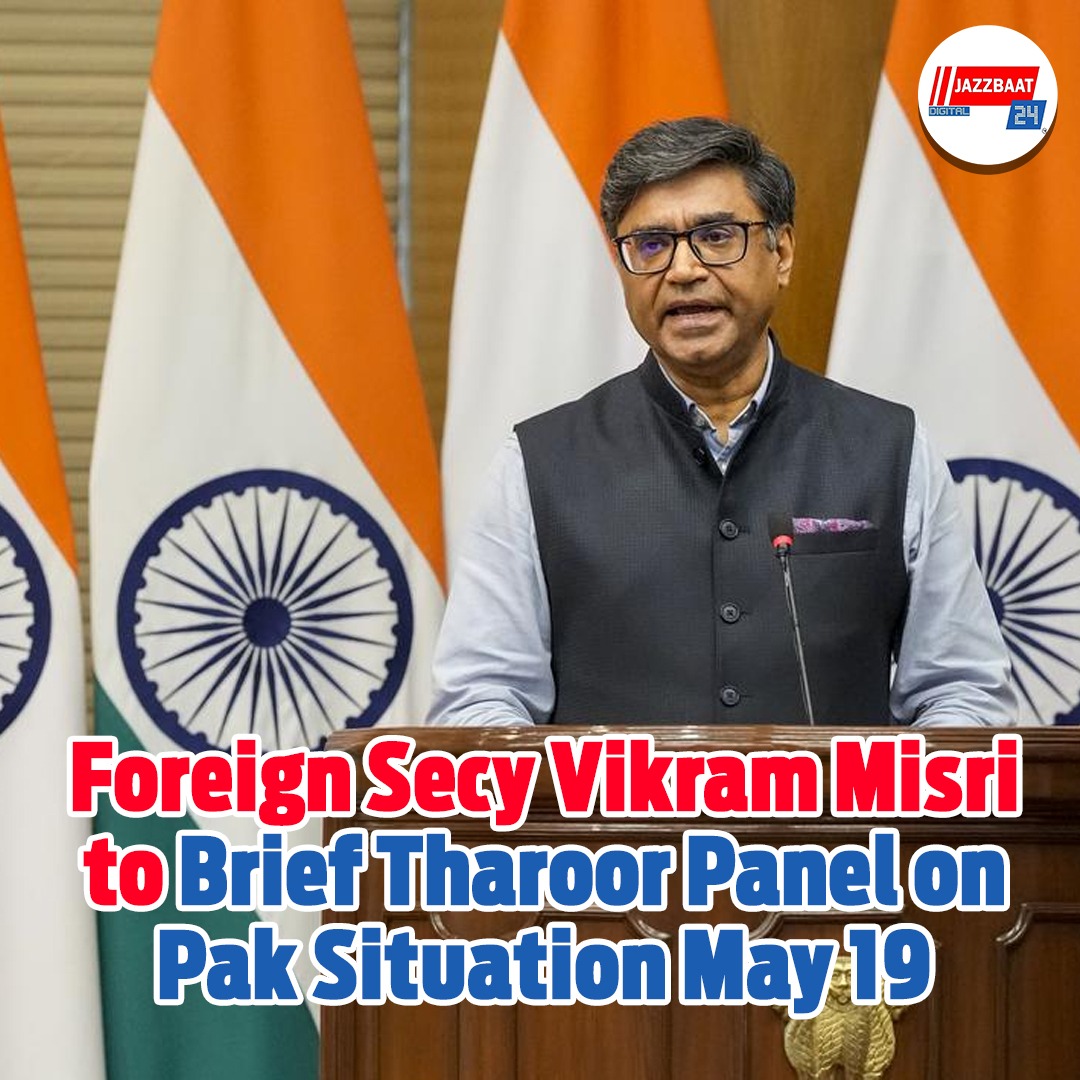
Foreign Secretary Vikram Misri will brief the Parliamentary Standing Committee on External Affairs headed by Shashi Tharoor on May 19, giving lawmakers an exhaustive update on the fast-developing situation with Pakistan after recent escalation and then ceasefire agreement. The meeting, following just days after India and Pakistan agreed to cease all military activities on land, air, and sea, will be expected to address the origins of the crisis, India's strategic reaction, and the diplomatic and security fallouts of Operation Sindoor.
Misri has been leading India's diplomatic and public outreach through the latest standoff, which was initiated following the April 22 terror attack on tourists in Pahalgam. India retaliated by conducting Operation Sindoor, attacking various terror infrastructures in Pakistan and Pakistan-occupied Kashmir, reflecting a serious escalation of hostilities across the border. During several briefings, Misri has explained how Pakistan's actions in recent days were "provocative and escalatory," such as their attacks on Indian cities, civilian infrastructure, and religious places, particularly a Gurdwara in Poonch where civilians lost their lives.
In his public remarks, Misri has consistently underlined that the Indian military response was "proportionate, adequate, and responsible," blunting both military and disinformation aggression by Pakistan. He has also discredited Pakistan's accusations of Indian aggression against religious targets in Pakistan, like the Nankana Sahib Gurdwara, as part of a disinformation campaign to create communal tensions within India. Misri’s briefings have included evidence, such as timestamped images of unaffected Indian Air Force bases, to counter Pakistani assertions of large-scale destruction in Indian territory.
The upcoming parliamentary briefing will likely address several key areas:
Operational Details: Misri will be expected to present legislators with a classified summary of Operation Sindoor, including its objectives, execution, and results. This will include the magnitude of India's military response, the targeting of terror infrastructure, and the status of Indian armed forces' operational readiness.
Diplomatic Initiatives: The Foreign Secretary will brief the panel on diplomatic initiatives, such as dialogue with global stakeholders and India's stance on third-party mediation. Interestingly, even though US President Donald Trump took credit for negotiating the ceasefire, India has asserted that the deal was a result of direct bilateral military talks, i.e., between the Director Generals of Military Operations (DGMOs) of the two nations.
Disinformation and Propaganda: Misri will probably report to the committee on Pakistan's disinformation campaign, such as fabricated reports of attacks on religious places and civilian infrastructure, and India's responses to reassure the public and gain international support.
Security and Civilian Impact: The committee will be briefed on civilian casualties and damage to infrastructure in Jammu & Kashmir and Punjab and steps to assist affected populations and avoid further escalation.
The briefing takes place in the midst of a politically charged climate, with Misri himself a victim of online trolling and abuse after the ceasefire announcement. High-ranking diplomats and political figures have come to his defense, highlighting the pressures involved for officials in managing high-level national security crises.
With the situation with Pakistan still in flux, the briefing on May 19 is poised to give Parliament a valuable, behind-the-scenes perspective on India's crisis management, military readiness, and diplomacy at a time of increased regional tension.